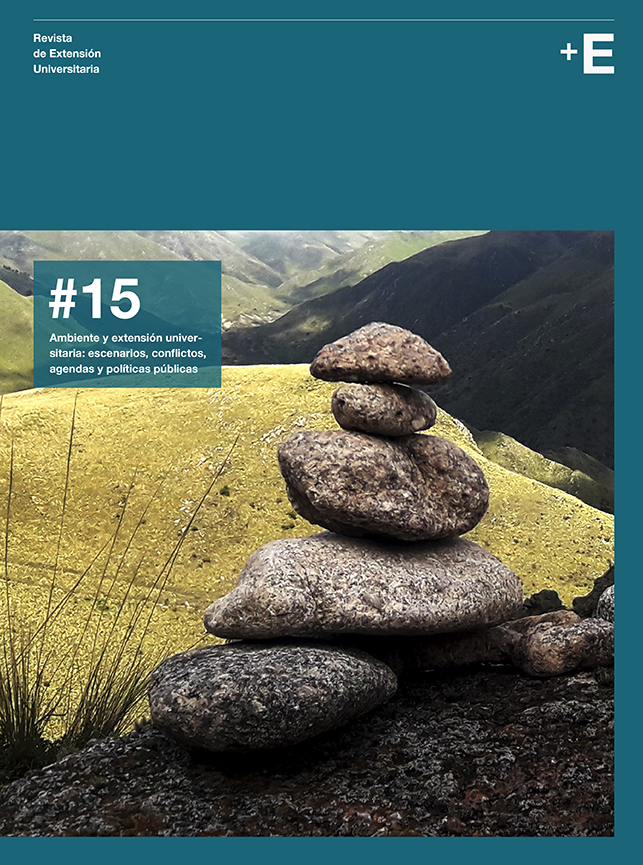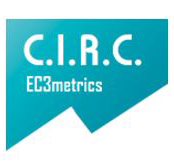Contributions from the sociology of social problems around environmental issues. Learning from experiences of extension university and research on risk management
DOI:
https://doi.org/10.14409/extension.2021.15.Jul-Dic.e0009Keywords:
social problematization, risk management, extension university, environment, sociologyAbstract
The article recovers knowledge and operations specific to sociology to contribute to the development of integrated intervention strategies around environmental problems based on research experiences, teaching and outreach on the problem of floods and risk management. To this end, it proposes a denatured view of these phenomena and takes up contributions from social problems theory to address the processes that affect the problematization of the environment in contemporary societies and the role of experts and knowledge scientific in the delimitation and construction of answers for such matters. Finally, it takes up some persistent challenges that are visible in the management strategies of environmental issues in order to enrich the field of debate on these processes and contribute to the deployment of interactoral and transdisciplinary strategies for their management.
References
Alonso, A. y Acosta, V. (2002). Para uma sociología dos conflitos ambientais no Brasil en Alimonda, H. (Ed.). Ecología Política. Naturaleza, Sociedad y Utopía. CLACSO.
Azuela, A.; Mussetta, P. (2009). Algo más que el ambiente: conflictos sociales en tres áreas naturales protegidas de México. Revista de ciencias sociales, 1(16), 191–215. http://ridaa.unq.edu.ar/handle/20.500.11807/1277
Beck, U. (1998). La sociedad del riesgo. Paidós.
Beck, U. (2002). Libertad o capitalismo. Conversaciones con Johannes Willms. Paidós.
Beltramino, T. y Theiler, J. (2017). Extensión universitaria e innovación social: reflexiones en torno a los vínculos entre la universidad y los actores sociales. + E: Revista de Extensión Universitaria, 7(7), 84–96. https://doi.org/10.14409/extension.v0i7.7053
Blumer, H. (1971). Social problems as collective behavior. Social problems, 18(3), 298–306.https://doi.org/10.2307/799797
Borraz, O. (2007). Risk and public problems. Journal of risk research, 10(7), 941–957. https://doi.org/10.1080/13669870701504541
Buttel, F. H. (1987). New directions in environmental sociology. Annual review of sociology, 13(1), 465–488. https://doi.org/10.1146/annurev.so.13.080187.002341
Callon, M. (2006). Luchas y negociaciones para definir qué es y qué no es problemático: la socio–lógica de la traducción. Redes, 12(23), 105–128. http://ridaa.unq.edu.ar/handle/20.500.11807/610
Catton Jr., W. R. y Dunlap, R. E. (1978). Environmental sociology: A new paradigm. The american sociologist, 41–49.
Chateauraynaud, F.; Torny, D.; Gilbert, C. (2013) Les sombres précurseurs. Une sociologie pragmatique de l'alerte et du risque. EHSS.
Douglas, M. y Wildavsky, A. (1983). Risk and culture. An essay on the selection of technological and enviromental dangers. Los Angeles Press.
Durkheim, E. (1986). Las reglas del método sociológico. Fondo de Cultura Económica.
Giddens, A. (1993). Consecuencias de la Modernidad. Alianza.
Giddens, A. (2000). Un mundo desbocado. Taurus.
Gilbert, C. (2003). Risques collectifs et situations de crise. Apports de la recherche en sciences humaines et sociales. L'Harmattan.
Gusfield, J. R. (2014). La cultura de los problemas públicos: el mito del conductor alcoholizado versus la sociedad inocente. Siglo Veintiuno Editores.
Hajer, M. (1995). The politics of environmental discourse. Clarendon Press.
Hannigan, J. (2014). Environmental sociology. Routledge.
Hilgartner, S. y Bosk, C. L. (1988). The rise and fall of social problems: A public arenas model. American journal of Sociology, 94(1), 53–78. 10.1086/228951
Latour, B. (2007). Nunca fuimos modernos. Ensayos de antropología simétrica. Siglo XXI Editores.
Martínez Allier, J. (2015). Ecología política del extractivismo y justicia socio–ambiental. Interdisciplina, 3(7). http://dx.doi.org/10.22201/ceiich.24485705e.2015.7.52384
Meadows, R. (1972). Los límites del crecimiento: informe al Club de Roma sobre el predicamento de la humanidad. Fondo de Cultura Económica
Merlinsky, G. (2014). Cartografías del conflicto ambiental en Argentina. CICCUS–CLACSO. http://biblioteca.clacso.edu.ar/clacso/se/20140228033437/Cartografias.pdf
Merlinsky, G. (2021). Toda ecología es política: Las luchas por el derecho al ambiente en busca de alternativas de mundos. Siglo XXI Editores.



























